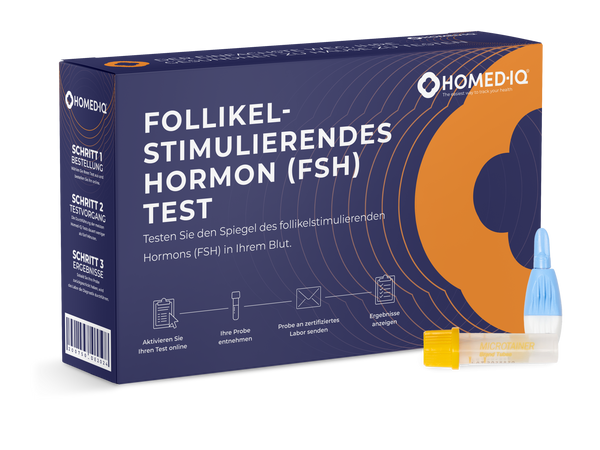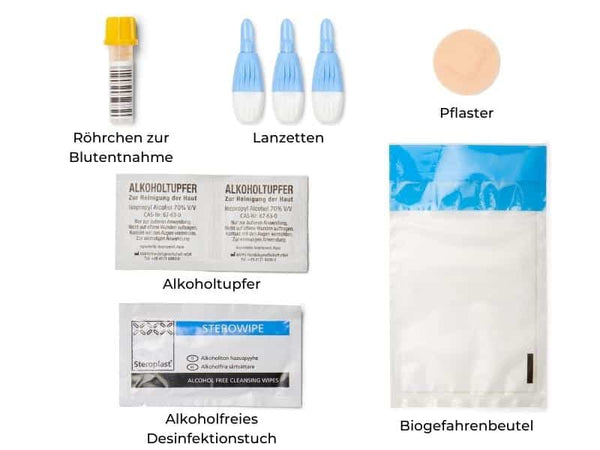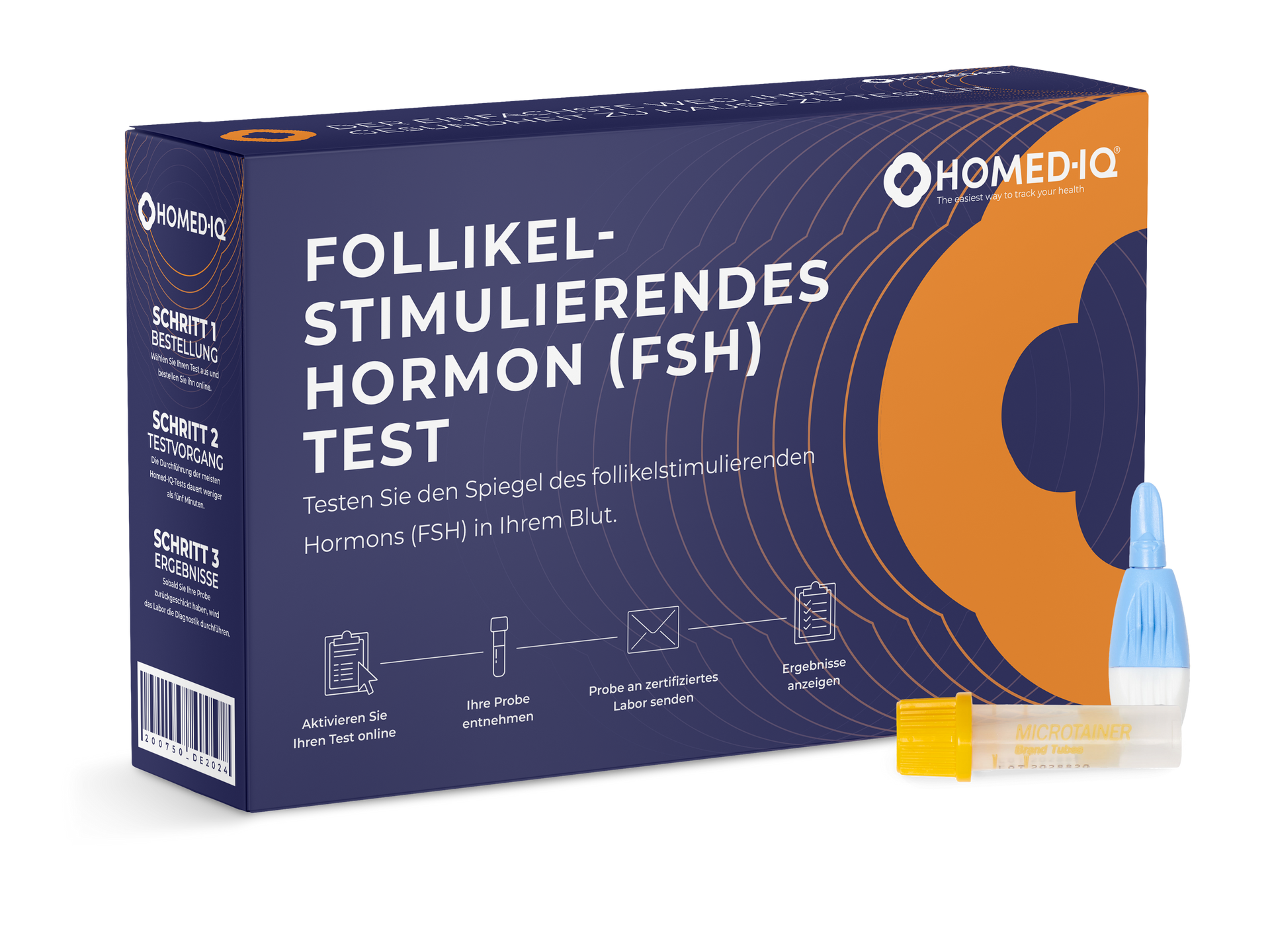Follicle Stimulating Hormone (FSH) Test
FREE SHIPPING TO
Follicle Stimulating Hormone (FSH) plays an important role in ovulation and the menstrual cycle. Too high or too low FSH levels can cause fertility problems and indicate problems with the ovaries or the glands that produce hormones in the body. This test measures the level of FSH in your blood. Use this home test to learn more about your reproductive health or check for hormonal imbalances that may be causing unwanted symptoms.
Test mode:
Finger Prick test
When to test: It is important to collect the blood sample on Day 3 of your menstrual cycle to ensure accurate results. The third day of your menstrual cycle refers to the third day of blood flow during your period. This test should not be used by women on hormonal birth control.
What is a Follicle Stimulating Hormone Test?
This blood test measures the level of follicle stimulating hormone (FSH) in your blood. This hormone plays an important role in controlling the menstrual cycle, ovulation, and the growth and maturation of eggs in the ovaries. FSH levels naturally increase with age. As the number of available eggs or ovarian reserve decreases, more FSH is needed to stimulate ovarian function. Abnormal FSH levels can impact your fertility or cause unpleasant symptoms such as irregular periods, excessive hair growth, or weight gain. The test requires a finger prick blood sample that you can easily take from home. Your sample will then be examined by a certified laboratory and you will receive the results within a matter of days. It couldn’t be easier!
What is Follicle Stimulating Hormone?
Follicle stimulating hormone (FSH) is a hormone produced in the brain’s pituitary gland and plays an important role in controlling the menstrual cycle, ovulation, and the growth and maturation of eggs in the ovaries. FSH levels naturally increase with age. As the number of available eggs or ovarian reserve decreases, more FSH is needed to stimulate ovarian function.
- Low FSH can indicate if the ovaries are not producing eggs (ovulating) due to problems with the pituitary gland or hypothalamus, being underweight, or undergoing rapid weight loss.
- High FSH can indicate polycystic ovary syndrome, diminished ovarian function, menopause, or certain genetic disorders, as the brain makes excess FSH to try and promote ovarian function.
What do the results of this test mean?
This test measures the level of follicle stimulating hormone in your blood. The results of this test can indicate hormone imbalances that may impact fertility, cause unpleasant symptoms, or indicate a medical condition that affects the production of hormones.
It is important to note that hormone values alone are not enough to predict the chance of pregnancy. Other factors, such as the quality of the egg cells, fallopian tubes, or the partner’s sperm, are also important. If you have questions about your test results or overall fertility, it is best to consult a doctor for comprehensive advice.
For whom is this test applicable?
- You have ovaries
- You are not using hormonal birth-control at this moment (or within the past three months)
- You want to get a better understanding of your hormone levels, risk of hormone-related health conditions, or your fertility
Symptoms of high FSH
Symptoms of high FSH in women usually mimic menopause, and can include:
- Irregular menstrual cycle
- Hot flashes
- Mood changes, including anxiety, irritability, or depression
- Fatigue
- Sleep disturbances
- Vaginal dryness
Symptoms of low FSH
- Irregular menstrual cycle
- Low libido
- Hot flashes
Causes of high FSH
Higher levels of FSH are often a sign of a condition that prevents the ovaries from making normal levels of sex hormones. High FSH may also be a sign of a condition outside of the reproductive glands that affects how the glands work.
Conditions linked to high FSH levels in women include:
- Polycystic ovary syndrome (PCOS)
- Primary ovarian insufficiency (POI)
- Menopause or perimenopause
- Damage to the ovaries from an autoimmune condition, chemotherapy, or radiation therapy
- Adrenal gland disorders
- Turner Syndrome
Causes of low FSH
- Being very underweight or having had recent rapid weight loss
- Not producing eggs (not ovulating)
- Parts of the brain (the pituitary gland or hypothalamus) not producing normal amounts of certain hormones
- Pregnancy
How does it work?
Order your test
Fast and discrete letterbox delivery
Activate & take your sample
Video instructions included
Laboratory analysis
ISO - Certified lab network
Receive your results
Easy access through mobile






